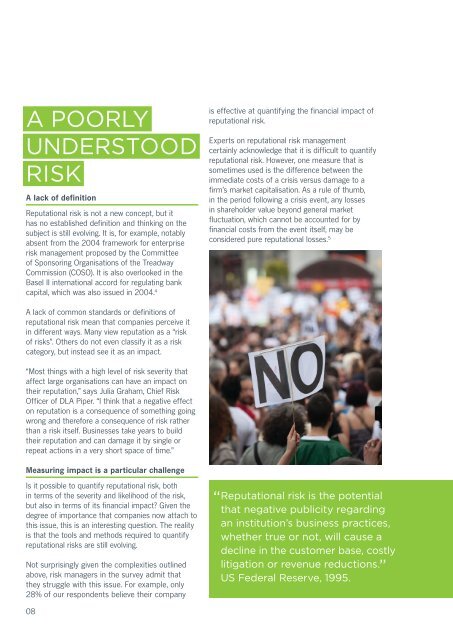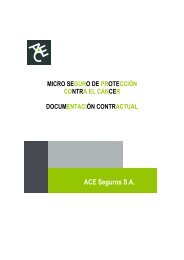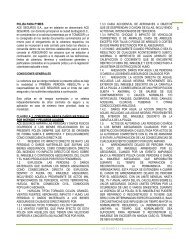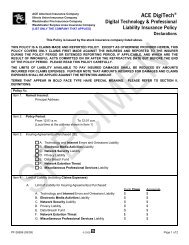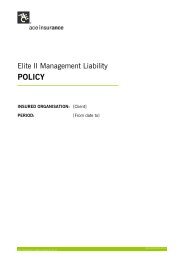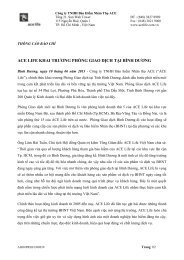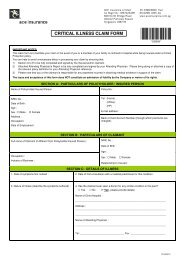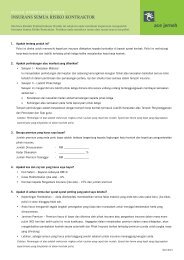REPUTATION AT RIsk - ACE Group
REPUTATION AT RIsk - ACE Group
REPUTATION AT RIsk - ACE Group
Create successful ePaper yourself
Turn your PDF publications into a flip-book with our unique Google optimized e-Paper software.
A POORLYUNDERSTOODRISKA lack of definitionReputational risk is not a new concept, but ithas no established definition and thinking on thesubject is still evolving. It is, for example, notablyabsent from the 2004 framework for enterpriserisk management proposed by the Committeeof Sponsoring Organisations of the TreadwayCommission (COSO). It is also overlooked in theBasel II international accord for regulating bankcapital, which was also issued in 2004. 4is effective at quantifying the financial impact ofreputational risk.Experts on reputational risk managementcertainly acknowledge that it is difficult to quantifyreputational risk. However, one measure that issometimes used is the difference between theimmediate costs of a crisis versus damage to afirm’s market capitalisation. As a rule of thumb,in the period following a crisis event, any lossesin shareholder value beyond general marketfluctuation, which cannot be accounted for byfinancial costs from the event itself, may beconsidered pure reputational losses. 5A lack of common standards or definitions ofreputational risk mean that companies perceive itin different ways. Many view reputation as a “riskof risks”. Others do not even classify it as a riskcategory, but instead see it as an impact.“Most things with a high level of risk severity thataffect large organisations can have an impact ontheir reputation,” says Julia Graham, Chief RiskOfficer of DLA Piper. “I think that a negative effecton reputation is a consequence of something goingwrong and therefore a consequence of risk ratherthan a risk itself. Businesses take years to buildtheir reputation and can damage it by single orrepeat actions in a very short space of time.”Measuring impact is a particular challengeIs it possible to quantify reputational risk, bothin terms of the severity and likelihood of the risk,but also in terms of its financial impact? Given thedegree of importance that companies now attach tothis issue, this is an interesting question. The realityis that the tools and methods required to quantifyreputational risks are still evolving.Not surprisingly given the complexities outlinedabove, risk managers in the survey admit thatthey struggle with this issue. For example, only28% of our respondents believe their company“ Reputational risk is the potentialthat negative publicity regardingan institution’s business practices,whether true or not, will cause adecline in the customer base, costlylitigation or revenue reductions.”US Federal Reserve, 1995.”08


